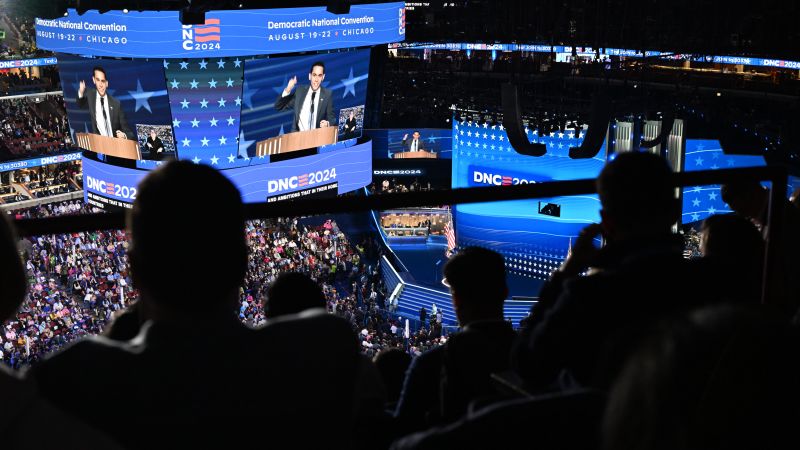The Democratic National Convention in Chicago featured Vice President Kamala Harris engaging with social media influencers, recognizing the necessity of reaching voters through non-traditional media strategies. Content creation, particularly on platforms like TikTok and Instagram, has become a key focus for the Harris campaign in an effort to connect with Americans, particularly young voters. By tapping into the power of influencers with millions of followers, the campaign hopes to meet people where they are most engaged – on social media platforms. This shift towards a more digital approach is aimed at expanding the reach of the Democratic message.
Content creators, including political and non-political influencers, were credentialled for the DNC and given special access to events and top Democratic surrogates such as Harris. The collaboration between creators and the DNC is seen as mutually beneficial, with influencers gaining increased exposure and credibility, while also helping to amplify the Democratic message. The exclusivity and access to political figures like Transportation Secretary Pete Buttigieg not only legitimizes the influencers, but also broadens their audience and engagement. This type of engagement is expected to grow in future conventions, creating a new pathway for political outreach to a wider audience.
The Harris campaign’s outreach to influencers has been praised as a model for Democrats, demonstrating a proactive approach to engaging voters through social media. Pennsylvania Governor Josh Shapiro commended Harris’ digital organization for actively seeking out voters and showing up on various platforms, making it easier for potential supporters to connect with the campaign. For Gen Z influencers, the opportunity to engage with political figures and share their perspectives on social media has humanized the political process and provided a way to connect with disillusioned younger generations.
The groundswell of support for Harris after becoming the Democratic nominee has added a sense of coolness and excitement to her campaign, with memes and social media posts contributing to her online presence. Influencers have noted the enthusiasm and energy surrounding Harris, with many expressing eagerness to support her candidacy. However, there remains the question of whether this online enthusiasm will translate into tangible action at the ballot box. While the memeification of Harris may engage young voters online, the ultimate test will be getting them to vote in the upcoming election. Despite the challenges, the collaboration between political campaigns and social media influencers represents a new frontier in reaching and engaging voters in the digital age.


